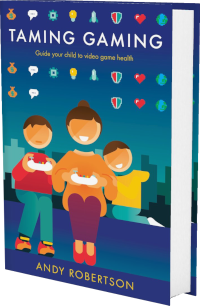 Android
Android iOS
iOS Mac
Mac Switch
Switch Wii
Wii Wii U
Wii U PC
PC PS4
PS4 PS5
PS5 Xbox One
Xbox One Xbox X|S
Xbox X|SWe've documented 24 accessibility features for Stellaris, including Fully Voiced (Or No Speech), Adjust Speed, Low Pressure, No Quick Reactions and Custom Difficulty. Its accessibility is strongest in Getting Started and Controls but it also has features in Communication, Reading, Difficulty, Navigation, Visual and Audio to reduce unintended barriers.
This report is created with input from accessibility experts and the player community to help people find games that have the accessibility features they require. Once you have found potential games on the database, there are excellent specialist accessibility sites that offer in-depth reviews to guide your purchasing decisions.
Our accessibility examiner, Ben Kendall, first checked Stellaris accessibility 2 years ago.
 Accessibility Notes
Accessibility Notes
While you can adjust the size of the UI, some of the text will still appear small and does not always contrast well with the background. The UI itself hosts a huge amount of information that can easily become overwhelming to new players.
 Game Details
Game Details
Release Date: 09/05/2016, updated in 2021
Out Now: Mac, PC, PS4 and Xbox One
Players: 1 (32 online)
Genres: Collecting, Strategy (Action, Communication, Fighting, Role-Play and Shooting)
Accessibility: 24 features
Components: 2D Side-On and Grid
Developer: Pdx Interactive (@PdxInteractive)
Costs: Purchase cost, In-Game Purchases and In-Game Pass
 Controls
Controls
We've documented 4 accessibility features for Controls in Stellaris which deal with how you control the game, different options for alternative inputs and whether you can remap these settings to suit your needs.
Gamepad
Can play with the following:
Multiple Buttons & Two Sticks: Can play with multiple buttons and two sticks.
Mouse And Keyboard
Can play with the following:
Mouse and Keys: Can play with mouse and multiple keys.
Button Combinations
Specific button operation required to play
Rapid Repeated Pressing Optional: Quick, repeated button pressing (more than 2 times a second) is not required, can be skipped or switched to holding a button to trigger a repeated action.
No Simultaneous Buttons: Only one button or key required at a time, in addition to direction stick(s).
Similar Games With More Accessibility Features for Controls
If you want to play Stellaris, but it doesn't offer the Controls accessibility features you require, these similar games extend the Controls accessibility:
- Minecraft (11 Controls Features)
- Cities: Skylines (10 Controls Features)
- Stardew Valley (9 Controls Features)
- Humankind (8 Controls Features)
 Difficulty
Difficulty
We've documented 2 accessibility features for Difficulty in Stellaris which deal with how you can adjust the challenge of play, and whether this is locked once chosen or can be adjusted as you play.
Difficulty Options
Select Difficulty: Select the level of difficulty from a range of presets. This not only offers a way to adjust the challenge of a game but enables you to do so without dealing with individual criteria.
Customise Difficulty: Customise different aspects of the game to create a challenge of an appropriate level. Adjusting elements individually enables you to tailor gameplay to suit your needs and style of play.
Similar Games With More Accessibility Features for Difficulty
If you want to play Stellaris, but it doesn't offer the Difficulty accessibility features you require, this similar game extends the Difficulty accessibility:
- Minecraft (3 Difficulty Features)
 Getting Started
Getting Started
We've documented 5 accessibility features for Getting Started in Stellaris which deal with what support is offered to get started with the game. This includes customising the experience when you first open the game via any onboarding processes it provides as well as tutorials and other assistance when you first start playing.
Assistance Getting Starting
These features aid your play of the game in terms of cognitive load on learning controls, dealing with pressure and coping with the environment and challenges.
Tutorials: There are helpful tutorials and instructions on how to play. Information is provided in a timely manner, with appropriate level of detail.
Reaction-Time Not Critical: Individual game actions don’t need quick reactions, or there are settings to lower the requirement for quick reactions. This means you don't need to quickly press a button in response to an on-screen prompt, target a fast-moving target or skillfully complete a scenario against the clock.
Low Pressure: Game tasks aren't time-limited or there's a low-pressure mode. This avoids the pressure of being put on the clock for overarching missions, or failing tasks because you didn't reach a destination in time.
Adjust Speed: Adjust the speed of the game at critical moments or throughout, or rewind play for a second attempt, to ease reaction times. By slowing the game, you have more time to interpret what is happening and then execute your actions. It also reduces the pressure on getting things right quickly or the first time you attempt them.
Assistance For Progressing
These features aid your progress through the game offering different ways of maintaining your progression.
Save Progress Anytime: The game automatically saves progress or you can save any time. This doesn’t mean you never lose progress, but it does mean you can stop whenever you want (without having to get to a save point) without losing progress.
Similar Games With More Accessibility Features for Getting Started
If you want to play Stellaris, but it doesn't offer the Getting Started accessibility features you require, these similar games extend the Getting Started accessibility:
- Cities: Skylines (8 Getting Started Features)
- Satisfactory (7 Getting Started Features)
- Minecraft (7 Getting Started Features)
- Cities: Skylines II (6 Getting Started Features)
 Reading
Reading
We've documented 3 accessibility features for Reading in Stellaris which deal with how much reading or listening comprehension is required, how well the game provides visual and audible access to the text and whether subtitles and captions are a good fit for purpose.
Reading Level
How much reading is required to play the game's main path or story and how complex the language is. The presence of voiced characters doesn't reduce this requirement, as it's recorded as a separate datapoint.
Extensive Complex Reading: Extensive reading required. The quantity and complexity of reading is suitable for someone who loves long books and enjoys extended dialogue or narrative descriptions.
Subtitles
All Speech Subtitled (Or No Speech In Game): All spoken content has subtitles, or there is no speech in the game. This means there is no requirement to hear spoken dialogue or narrative to play the game.
Voice Acted
All Dialogue is Voice Acted (Or No Speech In Game): All of the game dialogue and narrative can be voiced, or there is no speech in the game. This means there is no requirement to read the dialogue and narrative text to play the game.
Similar Games With More Accessibility Features for Reading
If you want to play Stellaris, but it doesn't offer the Reading accessibility features you require, these similar games extend the Reading accessibility:
- The Lord of the Rings: Rise to War (6 Reading Features)
- Satisfactory (6 Reading Features)
- Stardew Valley (5 Reading Features)
- Minecraft (5 Reading Features)
 Navigation
Navigation
We've documented 2 accessibility features for Navigation in Stellaris which deal with how the game provides guidance and assistance to navigate its worlds. These are only for games that have traversal and exploration in 2D and 3D spaces.
Head-Up Display
Adjust Head-Up Display: Resize and adjust the content of the head-up display. This enables it to be made more visible. It can also enable the removal of too much information that can be distracting or confusing.
Menu Navigation
Menus Don't Wrap: Menus don't wrap and stop the cursor at the bottom of the list if you press down. Or menus do wrap but make it clear that you are back at the top of the list with sound or narration.
Similar Games With More Accessibility Features for Navigation
If you want to play Stellaris, but it doesn't offer the Navigation accessibility features you require, these similar games extend the Navigation accessibility:
- Minecraft (7 Navigation Features)
- The Lord of the Rings: Rise to War (4 Navigation Features)
- Timberborn (3 Navigation Features)
- Satisfactory (3 Navigation Features)
 Visual
Visual
We've documented 2 accessibility features for Visual in Stellaris which deal with how you can adjust the visuals to suit your needs, and offer additional information if you can't hear the game.
Contrast
Medium Contrast: Game uses generally well contrasting and bright visuals, or has a slider to make this the case.
Motion Sickness Friendly
Motion Sickness Friendly: Doesn't have 3D movement elements that may trigger motion sickness, like motion blur, depth of field and field-of-vision. Or includes the ability to disable motion blur, depth of field and field-of-vision effects.
Similar Games With More Accessibility Features for Visual
If you want to play Stellaris, but it doesn't offer the Visual accessibility features you require, these similar games extend the Visual accessibility:
- Warsim: The Realm of Aslona (7 Visual Features)
- Minecraft (6 Visual Features)
- The Lord of the Rings: Rise to War (5 Visual Features)
- Hearts of Iron IV (4 Visual Features)
 Audio
Audio
We've documented 2 accessibility features for Audio in Stellaris which deal with how you can adjust the audio of the game and whether audio cues compensate for aspects of the game that are hard to see.
Adjustable Audio
Balance Audio Levels: Set music and game sound effects separately. This enables you to select your preference as well as ensure critical game sounds aren't obscured by other audio.
Play Without Hearing
Play Without Hearing: No audio cues are necessary to play the game well.
Similar Games With More Accessibility Features for Audio
If you want to play Stellaris, but it doesn't offer the Audio accessibility features you require, this similar game extends the Audio accessibility:
- Minecraft (4 Audio Features)
 Communication
Communication
We've documented 4 accessibility features for Communication in Stellaris which deal with how you can communicate with other players in the game and what options are available to customise and control this interaction.
Player-to-Player Online Communication
This is how players communicate with each other in online games. This can be to plan strategy, chat as they play or co-ordinate resources.
Text Chat: Chat to other players by typing text.
Voice Chat: Chat to other players on your team or friends list by speaking with headset.
Online Communication Assistance
Text-to-speech: Convert text messages from other players to voiced messages. Game converts text typed by the player into synthesized audio that's read aloud to all other players in the voice channel. This feature allows players who can't speak verbally to have their thoughts expressed aloud to the rest of the players in their party.
Speech-to-text: Convert voice from other players to text messages. Transcribes incoming speech from other players into text onscreen in real time. Players who can't hear voice chat can read what other players have said aloud on their screen.
System Accessibility Settings
In addition to the accessibility features provided in the game, you can also use system-wide accessibility settings:
PC
Windows has extensive accessibility features. Some, like colour correction, work with games. Lots of accessibility software can be used with PC games, from voice recognition to input device emulators.
PlayStation 4
PlayStation 4 has a range of accessibility settings. Some are system only, some work in games (invert colours and button mapping).
Xbox One
Xbox One has a system features, the excellent co-pilot share controls mode and adaptive controller support for all games.
Read more about system accessibility settings.
Accessibility Report supported by VSC Rating Board, PlayabilityInitiative and accessibility contributors Ben Kendall












